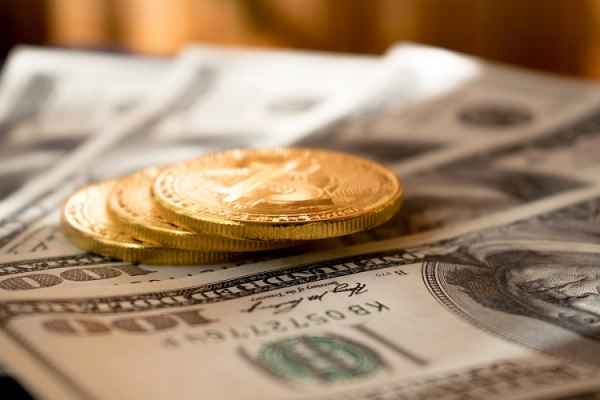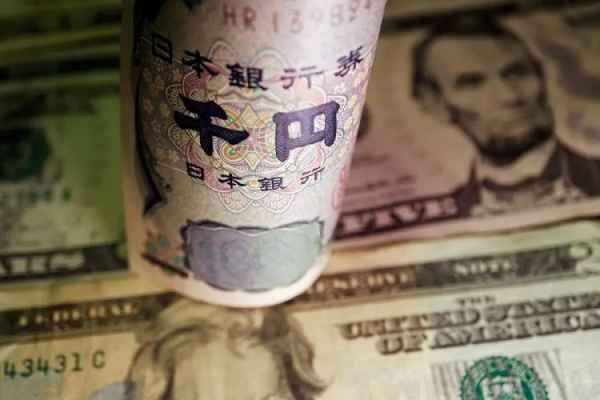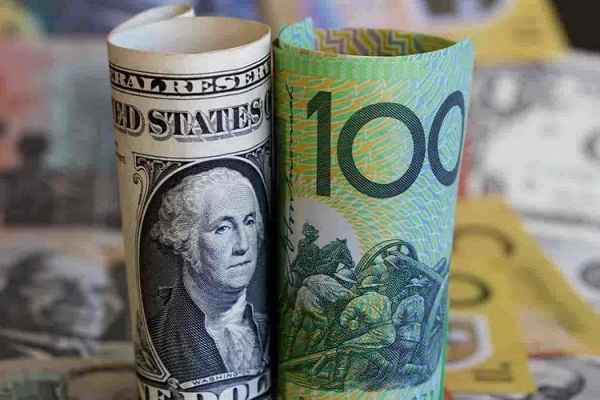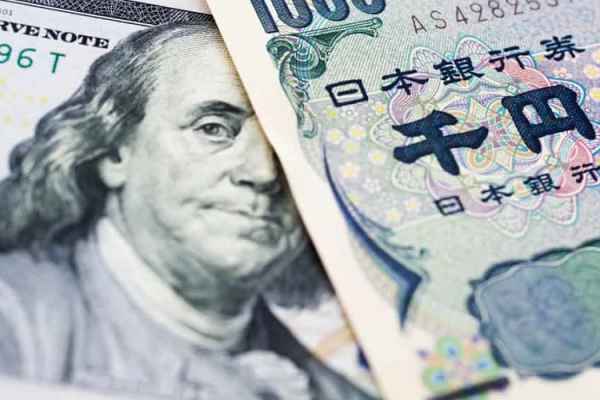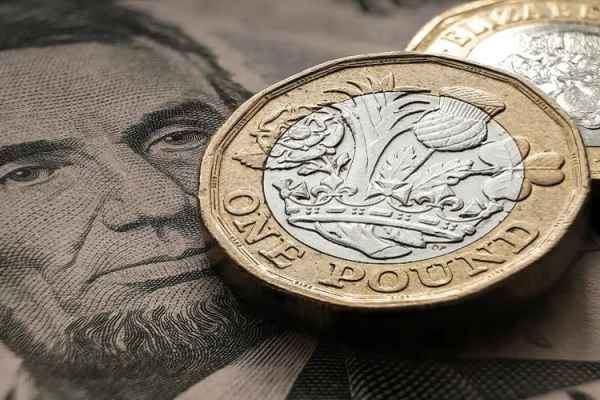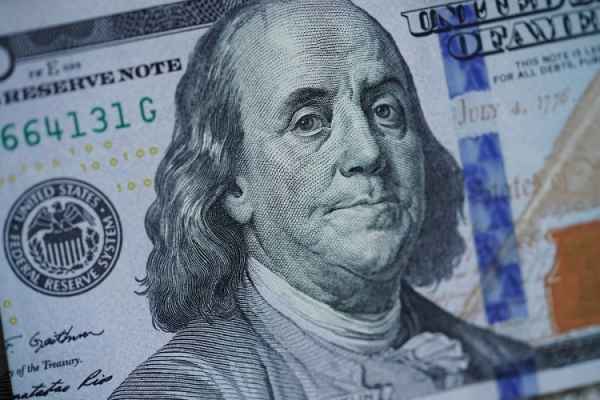The Bank of England is increasingly likely to cut interest rates in the next few months. In addition, some other pieces of news negatively impacted Pound Sterling.
The Pound Sterling was one of the unluckiest currencies in trading on Thursday (21/March). Sterling selloffs were suddenly rife after a series of key events, including the Swiss National Bank (SNB) and Bank of England (BoE) interest rate announcements. GBP/USD slumped nearly 1% to 1.2668 at the time of writing at the start of the New York session, while GBP/JPY lost more than 0.6% and EUR/GBP surged 0.4%.
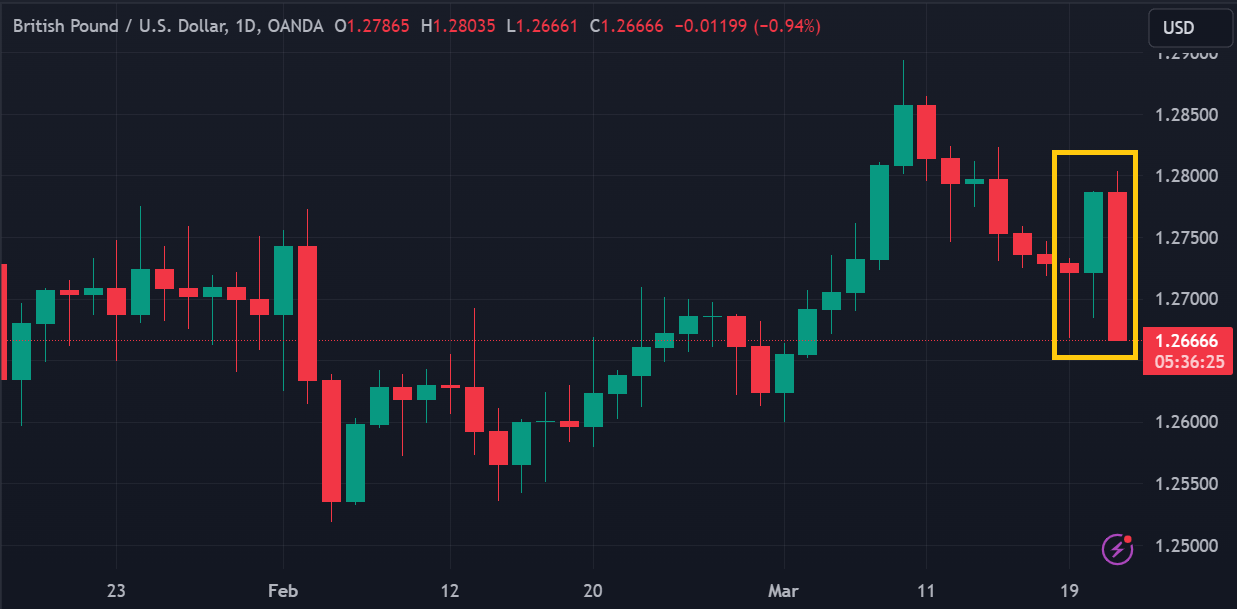
This afternoon, the BoE MPC Monetary Policy Committee meeting decided to leave the benchmark interest rate at 5.25%, which is in line with market expectations. However, there were many more dovish details behind the decision.
Two of the nine members recommended a rate hike at the BoE's February MPC meeting, but none of them did so at this meeting. One member recommended a rate cut instead, resulting in an 8-1 vote for a fixed rate decision.
The market took it as a "dovish shift," signaling a possible BoE rate cut in the next few months. Moreover, the BoE emphasized that "inflationary pressures continue to ease, albeit slightly more slowly than expected".
Yesterday's release of UK inflation data showed a slowdown from 4.0% to 3.4% (y/y) in February 2024. The release of the Purchasing Managers' Index (PMI) survey results this afternoon revealed rising inflationary pressures in private businesses, but general business conditions are still below expectations. The UK Composite PMI score stood at 52.9 in the preliminary March report, narrowly missing market expectations of 53.1.
Experts think Sterling's weakness this time will be relatively limited. This is because the market still expects the timing of the BoE rate cut to be almost the same as the ECB and the Fed - the projections are all compact starting in June. This means that Sterling's movement is likely to be constrained within the ranges that have been formed lately.
"Overall, caution towards monetary easing will continue to support the pound, which remains the best performing G10 currency so far this year along with the US dollar," said Derek Halpenny, Head of EMEA Global Market Research at MUFG Bank.

 Dedicated FREE FOREX VPS
Dedicated FREE FOREX VPS Free FOREX Virtual Private Server
Free FOREX Virtual Private Server MT4 Demo Contest, Get $500
MT4 Demo Contest, Get $500 Sign Up for an Account, Claim 60% Deposit Bonus
Sign Up for an Account, Claim 60% Deposit Bonus Free MT4/MT5 VPS 2024
Free MT4/MT5 VPS 2024 Send E-mail and Get Free Merchandise
Send E-mail and Get Free Merchandise $1K Refer a Friend Bonus for Pepperstone Pro clients
$1K Refer a Friend Bonus for Pepperstone Pro clients Maximize Your Earnings with 100% Deposit bonus
Maximize Your Earnings with 100% Deposit bonus Trade to Win, $5,000 Monthly Demo Contest
Trade to Win, $5,000 Monthly Demo Contest Claim 30% + 15% Deposit Bonus from LiteFinance
Claim 30% + 15% Deposit Bonus from LiteFinance
